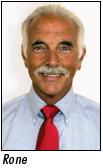ORLANDO, Fla. — Hospitality linen may be one of the most sought-after areas of business in the laundry industry. Low soil levels, a manageable number of inventory items, and an established client base not currently in line for government takeover all contribute to a profitable business climate.
But unlike the wave of outsourcing and shared-service mega-plants that has made the healthcare on-premise laundry (OPL) an endangered species, many hospitality companies continue to process their own work in-house and on-premise.
OPL PHILOSOPHY
Westgate Resorts, a timeshare subsidiary of Orlando-based Central Florida Investments, is a large hospitality operation with 30 resorts in 10 states. Its philosophy on laundry processing continues to utilize an OPL model.
Jim Bauer, laundry director at Westgate’s 2,900-unit Villas property just outside Disney World, says there are a lot of reasons that the company chooses to keep the laundry operations in-house. Some are financial, and some are quality-related.
“We have a lot more flexibility with an OPL,” Bauer says. His laundry processes approximately 11 million pounds annually for three local CFI properties. “Much of our business is timeshare. Just the logistics of building our distribution carts in an OPL environment improves our overall productivity.
“The linen distribution component of laundry is an area that can be overlooked in evaluating laundry processing costs,” he adds. “Although there may be qualified linen-service providers, our process works best in an OPL model.”
Bauer highlighted another cost related to distribution: required par levels. “The added cost of the additional par required to send linen out for processing is big money. We operate on three par for most items, which meets our needs. Adding another par would cost hundreds of thousands of dollars.”
Westgate’s internal quality control system catches stained linen before it is distributed to the units, according to Bauer. “A good-quality linen service with a similar reject rate would deliver the stained items mixed in with our linen delivery. That stained linen would end up in our rooms, or we would have to overstock our distribution system.”
Flexibility is another advantage of on-premise processing, according to Bauer. In the hospitality industry, available linen can mean the difference between a rented room and a vacant room. “Last week, we turned bed skirts for 500 units and had them all back on the beds the same day. We just couldn’t coordinate that (by) sending linen off-site for processing.”
CFI’s second Orlando-area laundry is located at the Westgate Lakes property just off Orlando’s popular International Drive. The plant managed by Eva Eberle processes approximately 8 million pounds of linen annually.
Westgate Lakes recently installed a new Milnor six-module PulseFlow® tunnel washer.
“Keeping the equipment operating in good order is one of our biggest challenges,” Eberle says. The laundry’s small footprint requires significant production in a small space. Tunnel processing provides an improved production-to-square-foot ratio, but also adds risk should equipment fail. “We are looking forward to the reliability and the water savings that the new tunnel will bring,” she says.
Coordination and backup service between the two Westgate laundries has prevented either property from requiring outside linen support for nearly four years, according to Eberle.
ANOTHER PERSPECTIVE
Although hospitality OPLs are plentiful, linen suppliers contend that most hospitality companies do not fully evaluate the total cost of in-house linen processing.

“My biggest challenge is getting hotels to take an honest, legitimate look at all of their costs, including the cost of the OPL space requirement,” he says. “For properties on the beach, or other premium locations, that space can be worth a fortune.”
In the current economic climate, many hoteliers are looking for line-item budget reductions, according to Rone. “Our investment in the most efficient equipment available allows us to process at lower costs and in turn provide hotels an immediate reduction in their cost of operations.”
In addition to cost savings, Rone points out a linen service provider’s ability to properly process high-end categories of linen. Higher-thread counts and super-sized king sheets need to be processed on specific finishing equipment for quality results, he says. “There are not many OPL operations with 138-inch working-width finishing systems that can process at 120 feet per minute.”
Laundry Plus now offers RFID (radio frequency identification) technology to track customer linen. “Our technology can provide an instantaneous inventory of linen throughout a property,” Rone says. “The web-based client interface not only tells you how many you have, but where they are, and where they have been.”
Besides inventory access, RFID provides actual linen longevity figures, he adds. “Historically, linen longevity provided by trade associations was general in nature.”
RFID can track how many washes a specific piece of linen has been exposed to, Rone says. “This data can help a general manager evaluate a linen product that costs more, but lasts longer. Now, our clients can have real data to determine what is best for their property.”
Meeting customers’ goals of reducing costs has kept his business on a steady 10-20% annual growth rate, Rone claims, and Laundry Plus is pursuing options for additional plant expansion.
Clearly, there are advantages to both on-premise and contracted laundry services. Additional factors to consider include available OPL space, equipment purchase requirements, and the competitiveness of a particular laundry service market.
The best decision requires a thorough evaluation of all the pertinent information for each particular application.
Have a question or comment? E-mail our editor Matt Poe at [email protected].

